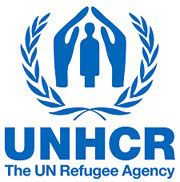The United Nations High Commission for Refugees (UNHCR) said that more than half of Afghanistan’s population is dependent on life-saving humanitarian assistance and protection.
According to the organization, one in two people in Afghanistan do not know where their next meal is coming from.
“Afghanistan’s people cannot be left behind. We provide direct aid to the most vulnerable. We build schools, health centers, water projects and roads to provide conditions for the voluntary return of refugees and displaced people when they feel ready,” UNHCR Canberra tweeted.
But the Ministry of Economy said the numbers of this ministry show that the poverty level in the country is decreasing.
“Keeping food and fuel prices constant, keeping exchange rates constant, increasing imports and exports, attracting domestic and foreign investment, creating domestic and foreign projects are among the programs of the Ministry of Economy to reduce poverty in the country,” said Abdul Latif Nazari, Deputy Minister of Economy.
Economists called on the Islamic Emirate to prepare systematic solutions to reduce poverty.
“The government should make clear and specific plans on the infrastructure programs that can create jobs, creating a mixed economic system and growth and development platforms to establish a direct relationship between foreign policy and economic policy,” said Shaker Yaghoubi, an economist.Meanwhile, a number of residents of the capital say that the increase in poverty and lack of employment has doubled their challenges.
“My economic situation is very bad. I have a car, but it has been twenty days that I haven’t worked,” said a resident of Kabul.The latest report from the National Bureau of Statistics shows that Afghanistan’s per capita income has dropped from $500 a year to $350 and food aid from UN agencies has not alleviated poverty in the country.—TOLO










